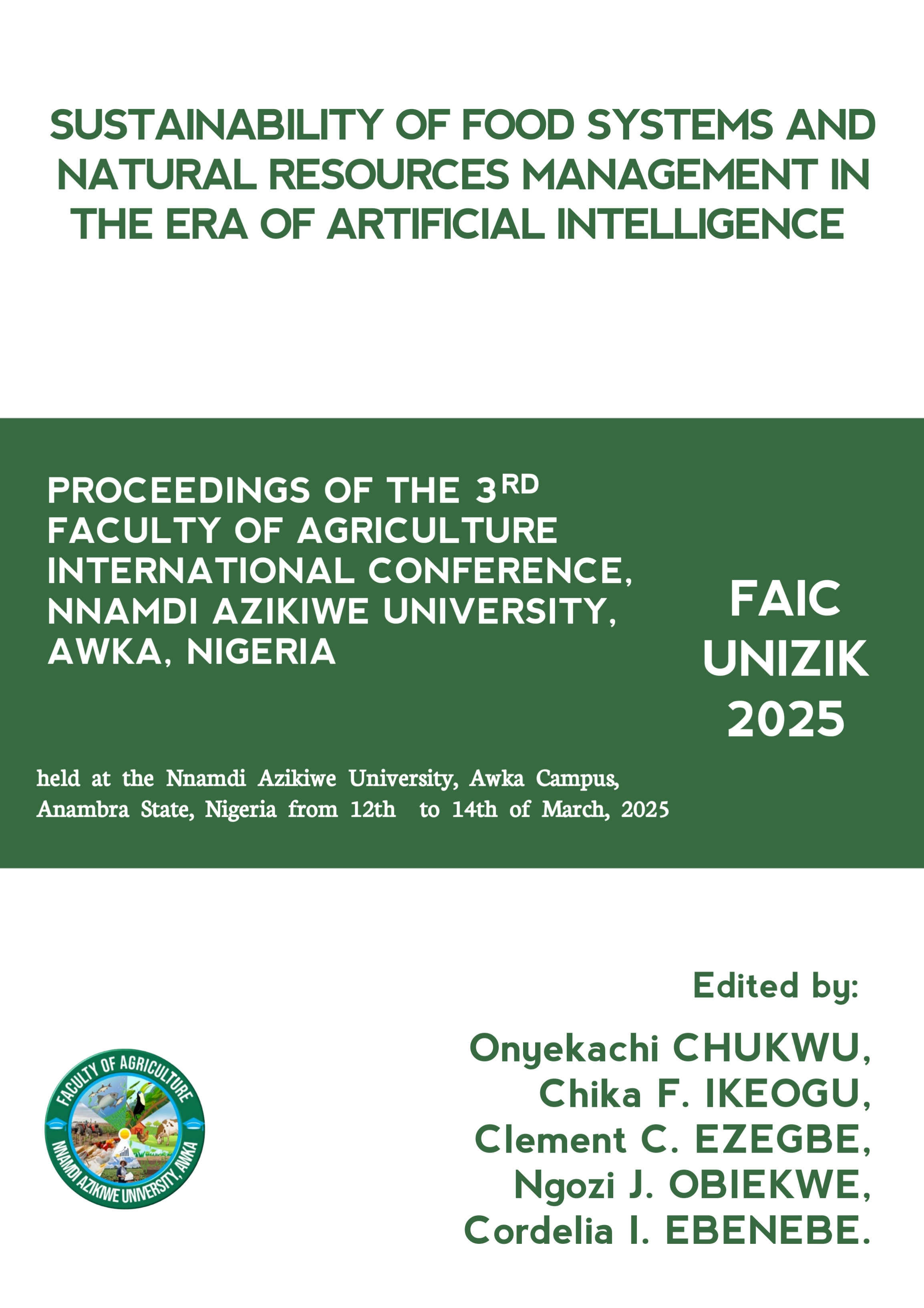Innovative Feed Technology in Aquaculture Production in Nigeria
DOI:
https://doi.org/10.5281/bbe4dc51Abstract
Auaculture is the fastest growing food sector in Nigeria which has the potential to meet the increasing demand for fish and ensure food security. The success of aquaculture heavily relies on the quality and efficiency of the feed provided to fish. High quality fish feed is important for the success of aquaculture because it significantly affects fish health, growth, and the sustainability of aquaculture operations. One of the significant challenges in aquaculture production is the high cost and limited availability of sustainable fish feed. In recent years, there has been a growing interest in the development of innovative feed technology that can help to improve the efficiency and sustainability of aquaculture production in Nigeria. These technologies include the use of sustainable alternative feed ingredients, advanced feed processing methods, implementation of automated feeding systems and the use of functional feed additives. Traditional fish feed are typically based on fishmeal and fish oil, which are expensive and in limited supply. Sustainable alternatives to fish meal such as plant-based proteins, insect meals, single-cell proteins, and microalgae improve feed sustainability, reduce costs of feed production and reliance on wild fish stocks. Advancements in feed processing, including extrusion, pelleting, and encapsulation improve feed digestibility, reduce nutrient losses, and enhance feed conversion efficiency. Technological innovations in automated feeding systems such as AI-driven sensors, drones, and automated feeders minimize waste, improve feed conversion ratios, and reduce operational costs. The inclusion of functional feed additives, such as prebiotics, probiotics, enzymes, and immunostimulants enhance feed digestibility, boost immune function, and promote growth performance in fish. Continued research and investment in feed innovation will be important for the long-term success of the aquaculture sector in Nigeria.





